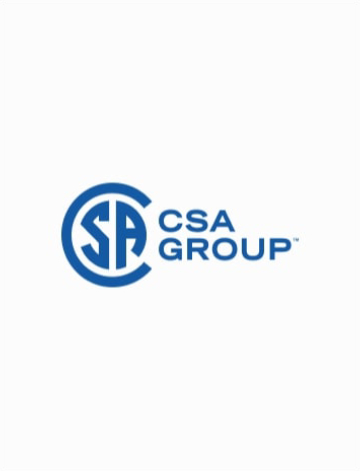Thanks to the financial contribution of the Western Regulators Forum (WRF), CSA Group is providing the CSA Petroleum and Natural Gas standards in a downloadable PDF format for no fee to Canadian customers only (Click for more detail). If you are not in Canada, please reach out to one of the following licensed CSA Group resellers to purchase these standards or contact your local reseller:
• Accuris (formerly S&P Global) (https://global.ihs.com/)
• Techstreet (https://www.techstreet.com/)
Preface
This is the twelfth edition of CSA Z276, Liquefied natural gas (LNG) — Production, storage, and handling. It supersedes the previous editions published in 2018, 2015, 2011, 2007, 2001, 1994, 1989, 1981, 1978, 1973, and 1972.
This Standard contains basic reference data relating to design, supplemented by specific requirements, where necessary, to establish a uniform interpretation of the design requirements.
The main differences from the previous edition are the
a) expansion of Clauses 4, 5, 10, and 14;
b) rewriting and reordering of Clause 13;
c) harmonization of Clauses 4, 5, 10, and 13 with Annex B;
d) rewriting and reordering of certain clauses in Clauses B.5 and B.10; and
e) expansion of Annex C.
This Standard was prepared by the Technical Committee on Liquefied Natural Gas (LNG) Production, Storage, and Handling, under the jurisdiction of the Strategic Steering Committee on Petroleum and Natural Gas Industry Systems, and has been formally approved by the Technical Committee.
This Standard has been developed in compliance with Standards Council of Canada requirements for National Standards of Canada. It has been published as a National Standard of Canada by CSA Group.
Scope
1.1 Application
This Standard applies to the
a) design;
b) siting;
c) construction;
d) operation; and
e) maintenance of facilities for the liquefaction of natural gas and facilities for the storage, vaporization, transfer, handling, and truck transport of LNG. It also contains requirements for the training of personnel.
1.2 Other LNG applications
1.2.1
For facilities that load or unload LNG from a marine vessel, this Standard contains requirements for the interconnecting piping between the loading/unloading arm flange and the storage tank(s), and other piping and appurtenances on the pier or jetty itself.
1.2.2
When LNG is dispensed into vehicles at an LNG facility, this Standard applies to the facility equipment and systems other than those solely used for LNG dispensing.
Note: Guidelines for LNG vehicle fueling stations can be found in CSA B108.2 1.2.3 The requirements for small LNG plants are given in Annex B. (See the definition of Small plant in Clause 3.)
1.2.4
The requirements for mobile and portable LNG equipment used on a temporary or permanent basis are covered in Annex B.
1.3 Exceptions
This Standard does not apply to the following:
a) frozen ground containers;
b) floating LNG facilities;
c) the transportation of refrigerants by any means;
d) the transportation of LNG by railcar or marine vessel;
e) the transportation of LNG or regasified LNG by pipeline beyond the facility boundary, except as specified in Clause 1.2.1;
f) facilities designed for the dispensing of LNG as fuel for railroad locomotives or marine vessels; and
g) LNG vehicle fueling stations (see CSA B108.2).
1.4 Pressure reference
All references to pressure throughout this Standard refer to gauge pressures unless otherwise specified.
1.5 Pipe size
All pipe sizes refer to nominal pipe sizes (NPS).
1.6 Units
The values given in SI units are the units of record for the purposes of this Standard. The values given in parentheses are for information and comparison only.
1.7 Terminology
In this Standard, shall is used to express a requirement, i.e., a provision that the user is obliged to satisfy in order to comply with the Standard; should is used to express a recommendation or that which is advised but not required; and may is used to express an option or that which is permissible within the limits of the Standard.
Notes accompanying clauses do not include requirements or alternative requirements; the purpose of a note accompanying a clause is to separate from the text explanatory or informative material.
Notes to tables and figures are considered part of the table or figure and may be written as requirements.
Annexes are designated normative (mandatory) or informative (non-mandatory) to define their application.


